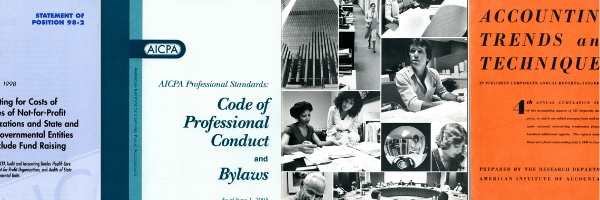
Exposure Drafts, Comment Letters, and Statements of Position
Files
Download Full Text (6.5 MB)
Description
This Statement of Position (SOP) provides guidance on a seller's accounting for real estate time-sharing transactions. 1. For a time-sharing transaction to be accounted for as a sale, the transaction should meet the following criteria: a. The seller transfers nonreversionary title to the time-share. b. The transaction is consummated. c. The buyer makes cumulative payments (excluding interest) of at least 10 percent of the sales value of the time-share. d. Sufficient time-shares have been sold to reasonably assure that the units will not become rental property. If the seller does not transfer nonreversionary title, the transaction should be accounted for in the same manner as an operating lease. 2. If a time-sharing transaction accounted for as a sale meets certain criteria, the seller should recognize revenue immediately under the full accrual method. If a transaction accounted for as a sale does not meet those criteria, the seller should delay recognition of revenue. 3. The seller should apply the full accrual method if: a. The time-sharing receivable is not subject to future subordination. b. The seller can demonstrate collectibility of the receivable. c. The seller can estimate credit losses with reasonable reliability. d. Development of the project is complete. 4. The seller should apply the percentage-of-completion method if the first three conditions for full accrual accounting are met but development of the project is not complete. 5. If any of the first three conditions for full accrual accounting is not met but development is complete, the seller should apply the cash-received method. 6. If a transaction previously accounted for under the deposit, cash-received, or combined method of accounting meets the criteria for a "higher" revenue recognition method, the seller should change to the applicable accounting method for that transaction in the period in which the criteria are met. 7. Certain sales incentives the seller provides a buyer to consummate a transaction should be recorded by reducing the stated sales price of the time-share by the excess of the fair value of the incentive over the amount the buyer pays and recording the incentive separately. 8. All costs incurred to sell time-shares should be charged to expense as incurred except for certain costs that are: a. Incurred for tangible assets used directly in selling the time-shares. b. Incurred for services performed to obtain regulatory approval of sales. c. Direct and incremental costs of successful sales efforts under the percentage-of-completion or deposit methods of accounting. 9. The seller should account for cost of sales and time-sharing inventory in accordance with the relative sales value method. 10. The term credit losses should be interpreted broadly to include all situations in which, as a result of credit concerns, a time-share seller collects less than 100 percent of the contractual cash payments of a note receivable, except for certain transfers of receivables to independent third parties by the seller. 11. Rental and other operations during holding periods, including sampler programs and mini-vacations, should be accounted for as incidental operations, which requires that any excess of revenues over costs is recorded as a reduction of inventory cost. 12. The accounting treatment for more complex time-sharing structures such as timesharing special purpose entities (SPEs), points systems, and vacation clubs should be determined using the same sale and revenue recognition guidance as for simpler structures, provided that the time-sharing interest has been sold to the end-user. 13. If the seller, seller's affiliate, or related party operates an exchange, points, affinity, or similar program, the program's operations constitute continuing involvement by the seller, and the seller should determine its accounting based on an evaluation of whether it will receive compensation at prevailing market rates for its program services. 14. A reload transaction is considered to be a separate sale of a second interval, and the accounting for the second interval is determined via application of the sale and revenue recognition guidance of this SOP.
Publication Date
2003
Relational Format
Book
Keywords
Timesharing (Real estate) -- Accounting -- Standards -- United States
Disciplines
Accounting | Taxation
Recommended Citation
American Institute of Certified Public Accountants. Accounting Standards Executive Committee, "Proposed statement of Position : Accounting for real estate time-sharing transactions Accounting for real estate time-sharing transactions; Exposure draft (American Institute of Certified Public Accountants), 2003, Feb. 20" (2003). Exposure Drafts, Comment Letters, and Statements of Position. 298.
https://egrove.olemiss.edu/aicpa_sop/298



Comments
Originally published by: American Institute of Certified Public Accountants; Copyright and permission to reprint held by: American Institute of Certified Public Accountants.